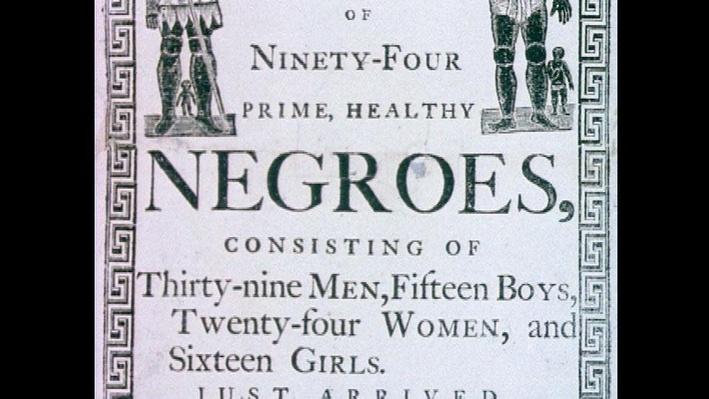 |
| An advertisement, from colonial times, for "prime, healthy Negroes." |
The Volokh Conspiracy -- a conservative and libertarian law blog I've been reading for years and which some time ago was elevated to a Washington Post blog -- has always provided me with glimpses of how conservative intellectuals justify the basis for their legal arguments. I've rarely agreed with their viewpoint, but, because many if not all of the contributors are law professors of some standing, I've had to respect the validity of their arguments. At least until today.
David Post, writing on the "Conspiracy" in today's WaPo, makes an argument busting the "slavery myth," maintaining that slavery was not in fact a "national institution."
Historian Sean Wilentz had a wonderful op-ed (“Constitutionally, Slavery Is No National Institution”) in the NY Times a few days ago, about what he properly refers to as the “myth” that “the United States was founded on racial slavery.” It’s a view of the nation’s founding that, oddly and ironically, aligns many on the Left (like Bernie Sanders, whom Wilentz quotes as saying that “the United States in many ways was created, and I’m sorry to have to say this, from way back, on racist principles, that’s a fact”) with South Carolina’s pre-Civil-War Senator John Calhoun, who was the staunchest and most eloquent advocate for slavery, and opposed to (among others) James Madison, Abraham Lincoln, and Frederick Douglass.Fine. This is a straw-dog argument, embedded in the op-ed by Wilentz that Post uses to make his point. If you read the whole post, it's clear that Post is celebrating the notion that pro-slavery factions failed to get the Constitution to include language that would legitimize slavery as a national institution. To him, this means that slavery was never a national institution.
That's nonsense, and any academician worth his salt would never base his or her argument on it. The fact is that slavery was an American institution long before the Revolutionary War and long after the Constitution barely addressed it, and is a major factor in the state of race relations today.
I can't help but believe that the purpose from an historical perspective of Wilentz' premise and Post's support of it is to somehow delegitimize the views of those, like Bernie Sanders -- or Black Lives Matter, for example -- that we bear continuing responsibility, as a nation, to fix what we broke so long ago.
The struggle continues, in more ways than one.

No comments:
Post a Comment